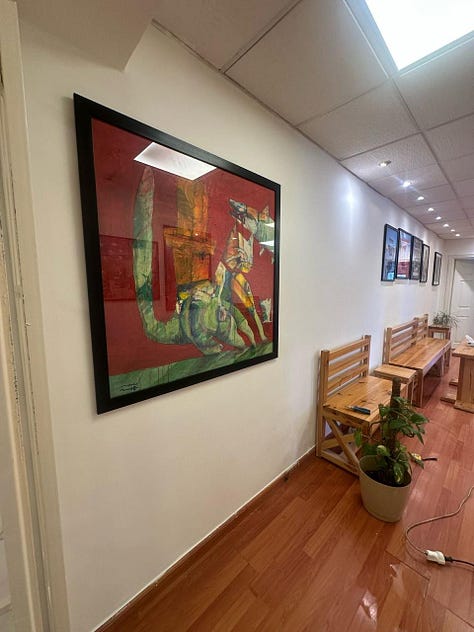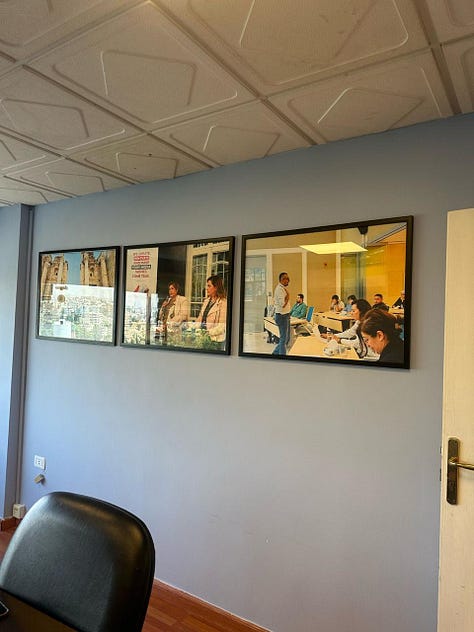In May 2025, Jordan’s Media Commission ordered the blocking of 12 independent news websites, accusing them of “spreading media poison” and “targeting national symbols.” The decision came shortly after reports emerged alleging government profiteering from humanitarian aid to Gaza. What’s puzzling, however, is that Jordanians can still access these same outlets through social media platforms, raising questions about the effectiveness—and purpose—of such censorship.
Meanwhile, The Washington Post is undergoing major restructuring amid financial pressures and internal upheaval. A voluntary buyout program has been introduced targeting seasoned journalists and editors, including those in key departments like copy, sports, and video. These changes follow earlier layoffs and the exit of high-profile staff, prompting concern about the paper’s editorial future.
Along with funding cuts on independent media outlets, these developments reflect deeper uncertainties facing journalism worldwide: shrinking revenues, political pressure, and the difficult balance between independence and survival.
I was struck by an essay written by A.G. Sulzberger on freedom of the press this month:
“The business model that funded original reporting is failing. About a third of all newsroom jobs have disappeared in the past 15 years. That economic pressure has been increased by the difficulty of operating in an information ecosystem dominated by a handful of tech giants. They control the flow of attention online, but most have shown something between apathy and open hostility to independent journalism and little concern about the quality of information they pass along to the public.” A.G. Sulzberger
On the topic of technology and news, the Reuters Institute found that young audiences view news not just as what they should know, but also as what is useful, interesting, or entertaining, often consuming it passively through social media and cultural content. Unlike traditional media’s focus on public interest, young people value news for its personal relevance.
Many see it as a chore, and while some remain engaged, large segments are passive or indifferent. Reaching them requires understanding their habits and motivations, not just producing more content.
Media production continues this month from our team — one video on turning waste into art, and another on the legacy of one of Jordan’s oldest schools. Our office also had a makeover this month (photos below)!
Also, if you like what you read here, please hit the share button below!
Warm wishes,
Rana F. Sweis
Founder, Wishbox Media Company
💡 What we've been up to
🖼️ Can waste become art? This month, we featured a Jordanian engineer from Jenin Al-Safa who built an eco-space dedicated to transforming garbage into striking, meaningful sculptures. It’s a visual story of sustainability, creativity, and community.
🖼️ Our office got a visual refresh! We swapped out the wall art for highlights from past projects, each piece a snapshot of the stories we've told and the journeys we've taken. It’s more than just decoration; it’s a celebration of our work and purpose.



📽️ We’ve released a new video report on Zarqa Secondary School for Boys, one of Jordan’s oldest schools, founded in 1935. The story highlights its rich history, the challenges it faces today, and its lasting role in the community.
“We’re not the resistance. We are nobody’s opposition. We’re also nobody’s cheerleader. Our loyalty is to the truth and to a public that deserves to know it.” A.G. Sulzberger
🎓 Our Managing Director, Rana Sweis, visited Yarmouk University to personally thank the students from the Translation Department who translated our portfolio into Arabic. During the visit, she met with Dr. Nancy Musleh and Dr. Raeda Ramadan, and presented certificates of appreciation to the students for their excellent work and dedication.
🎭 Fesfori Is Back!
A second episode is launching this summer — Fesfori Returns!
We're currently filming a new installment of Fesfori, our youth-focused series that explores politics and civic life in Jordan in a bold, engaging way. Full episodes will be aired exclusively on our YouTube channel, with behind-the-scenes moments and selected clips shared across our social media platforms.
🗄️ From the archive
🖌 Power of GIF’s: GIFs—short, looping, soundless animations—have become a powerful tool in digital storytelling. Their continuous repetition captures attention quickly, conveys emotion or information instantly, and performs well across platforms. Whether used to highlight key moments, add a touch of humor, or break down complex ideas visually, GIFs are engaging, versatile, and easily shareable.
At Wishbox Media, we’ve incorporated hand-drawn GIFs into projects for several clients, using this format to bring creativity, and clarity to their messages. This digitally hand-drawn GIF was developed as a part of a series on democracy and youth participation.
📺 Our media consumption
📡 Shadowy world of shortwave
On the Media podcast returns with a gripping new episode, “Fishing in the Night”. This episode dives into the shadowy world of shortwave radio. Once a symbol of global unity, it’s now a tool for fringe voices and propaganda. The episode unpacks how this old-school medium still shapes narratives across borders.
📱 Jony Ive’s AI hardware startup, io
We’re following OpenAI’s $6.5 billion acquisition of Jony Ive’s AI hardware startup, io, their biggest deal yet. Ive, famed for designing the iPhone, is now leading the charge to build AI-native devices that rethink how we interact with technology. The first product is expected to debut in 2026.
🤯 A Terrifying Development: Project Esther
Have you heard about Project Esther, the Heritage Foundation’s latest initiative that takes aim at any expression of support to Palestinians in the name of national security? While presented as a protective measure, the project dangerously conflates advocacy or even expression with extremism, proposing sweeping policies such as surveillance and even deportations. Critics are rightfully sounding the alarm. Read about this initiative.
🤖 Biased AI Models
We’re intrigued by a recent study revealing that AI models trained in different countries produce divergent views on geopolitical issues, potentially increasing political polarization. The research highlights how AI tools, influenced by their training data, can reflect and amplify national biases, raising concerns about their impact on global discourse.
💼 Rethinking entry-level roles
We’re keeping an eye on the evolving job market, where AI is reshaping entry-level positions. Aneesh Raman, LinkedIn’s Chief Economic Opportunity Officer, notes that AI is "breaking" traditional entry-level roles, making it harder for new graduates to gain experience. This shift underscores the need for rethinking career pathways in the age of automation.
🎙️ Voice of the first Arab female author
We really enjoyed listening to this podcast, in which our own freelance journalist, Natasha Tynes, interviews the writer who documented the life of the first Arab female author, Sayyida Salma.
📩 Get in touch, and let’s bring your ideas to life!





